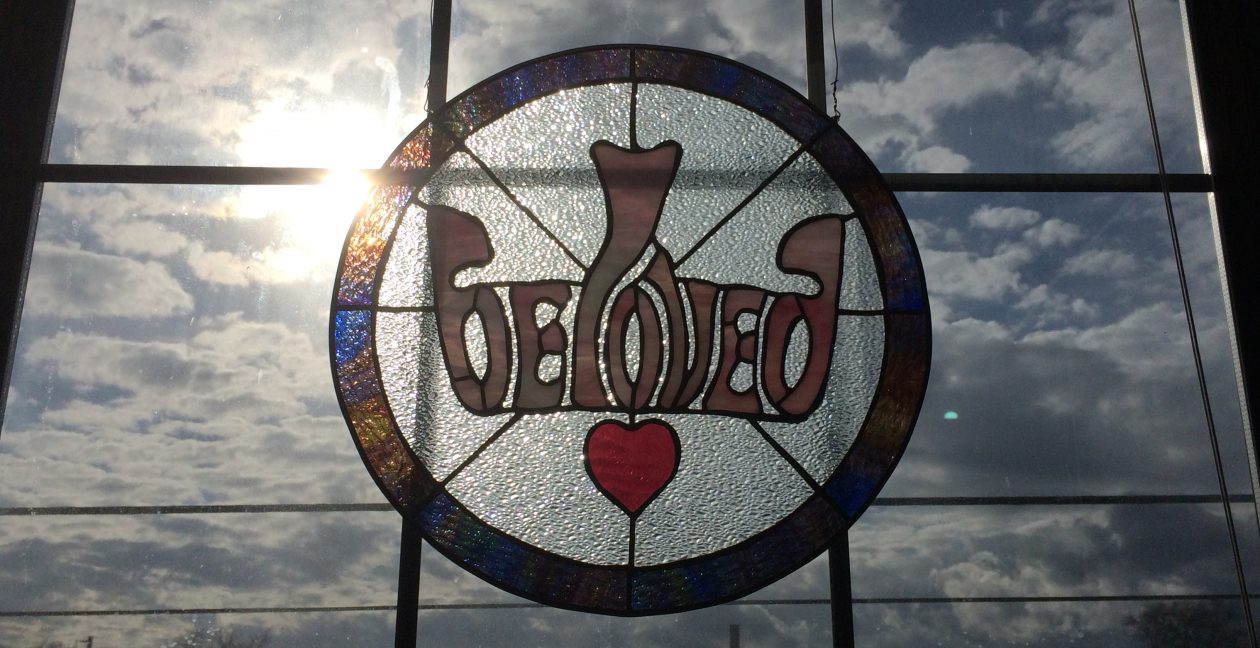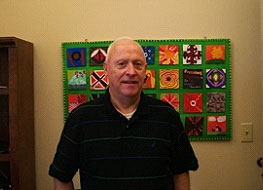There is an older American hymn whose first few stanzas offer these words:
My
life goes on in endless song
Above earth’s lamentations,
I hear the real, though far-off hymn
That hails a new creation.
Through
all the tumult and the strife
I hear its music ringing,
It sounds an echo in my soul.
How can I keep from singing?
While
though the tempest loudly roars,
I hear the truth, it liveth.
And though depths of night ’round me close,
Songs in the night it giveth.
This is a question we have found ourselves asking during this pandemic, “How can I keep from singing?” Pastors, Ministers of Music, Choir members, and even those who lead on the Conference and General Synod levels have had to make painful and unprecedented decisions that keep us from singing because of the increased danger posed by singing in our congregational spaces. Many of us feel the absence of singing together, of making music together, very deeply. What do we do with this deep loss?
There are three thoughts I offer to you in this season:
First, I encourage us to take the legitimacy of this loss seriously. The majority of Christian traditions value congregational singing as a central aspect of communal worship. That means that we understand worship to include singing, and more importantly, to include singing together. Here at Beloved, we have all witnessed ways in which singing as a community enhances our worship. Our inability to gather as the people of God and sing together leaves us with a profound sense of loss in three major ways.
This loss affects our engagement of the Subject of our praise. Our sense of praise often feels diminished when we cannot find a song or lift a song in times of struggle or of breakthrough. To be told that we cannot sing together as we worship together may cause us to feel that we can’t fully connect with God in worship. Most of us want to outwardly express our praise and our prayers. Even when we cannot do so in the prayers we formulate or by shouting or lifting our hands and dancing about, we have been able to sing or enter into song.
This loss also affects our sense of community when we praise. We are shaped not just by the texts we sing and by the melodies we sing; we are shaped by the act of coming together and singing itself. We are shaped by listening to each other and for each other. We are shaped by strengthening the weak among us and by lifting up a song for those whose hearts can’t lift up a song for themselves.
And this loss affects the impact, outcomes, and results of our praise. Many of us sing a song when we get a breakthrough or when our hearts are glad in spite of life’s circumstances. One of my dear friends has difficulty learning and following songs in church, but when her heart is happy, she is prone to start humming “Deck the halls with boughs of holly! Fa-la-la-la-la-la-la-la-la!” It has never mattered whether it was the Christmas season or not. It only matters that her heart is happy. We sing a song because we can acknowledge—in our singing, our worshiping, and our gathering—our awareness that God has taken care of our need. We can acknowledge in song that God knows our names. We can acknowledge “God will take care of you” in song. We can acknowledge that “Jesus will fix it,” and knowing these things makes our hearts just want to sing. To not be able to sing together robs us of feeling the presence of God in different and profound ways. “How can I keep from singing?” How can we keep from singing?
Secondly, I encourage us to grieve what this loss means for you individually and for us as a singing community—for those who lead music in our congregation, for our congregation, and for the larger community. There is something about grief when it is not given voice or room for venting. That grief can linger past its time and cause us greater suffering, do greater damage. Grief can remain unresolved. Those of us who work in pastoral care and other helping professions often recognize the impact of unresolved grief in people’s lives. So this is a call to mourn what you have lost. Yet even as I call us and encourage us to mourn what we have lost by not being able to sing together, I am mindful of this wisdom in the book of Deuteronomy regarding the Israelites’ mourning following the death of Moses. That is, mourning comes to an end. It is important that we grieve, that we grieve deeply, and that we grieve fully; but our mourning, our grieving, needs to come to an end so as to not cripple us.Finally, I encourage us to not allow our sense of loss to keep us from missing the opportunities that not singing presents to us. Richard Foster, author of Celebration of Discipline, reminds us that taking up a spiritual discipline refers to something that we intentionally limit ourselves from doing or from having so that we can deepen and broaden our lives and spirituality in other ways. I suggest that this period in which we have lost the ability to sing when we come together as we once did can have positive impact that counters what we have lost.
In this time when we cannot gather and sing as we once did, we have an opportunity to seek God more fully both as we grieve and as we employ or discover new ways of offering our praises and our laments. We can use this time to worship God with more of our body and mind although our voices are stilled or subdued for now. We can take what we cannot sing and pour it out in our emotions, pour it out on paper, pour it out in cooking and gardening, pour it out in things we can create. We can let the words of the songs become our meditations more than they ever have before.
This time of not being able to gather and sing as we once did also offers us the opportunity to not just do the congregational or choral version of “hit it and quit it” or just coming to church to get our a fix for our need to sing. This is now an opportunity to deepen relationships within the congregations and ensembles in which we sing or make music. It is an opportunity to get to know people in a different way, to hear how they are hurting, and to be a support system for each other. If we do this now, then when we are able to sing together again, we will be able to hear each other differently and to feel each other’s pain differently so that we are able to sing and pray differently so we are able to heal differently in our communities.
This is a time to deepen the impact, outcomes, and results of our praise. I know that when I have been in a time of fasting, the first opportunity to break the fast is a joyous moment, not just because I get to eat but because I get to be with those who add joy and community to my eating. The same can be true for our singing. This is a singing fast for us in many ways, but consider how much more joyous our praise will be when we can be together and sing together once again! As I close this moment of reflection, I return to the refrain of the hymn, “How Can I Keep from Singing:”
No
storm can shake my inmost calm,
While to that rock I’m clinging.
Since love is lord of heaven and earth
How can I keep from singing?
Amen.
https://hymnary.org/text/my_life_flows_on_in_endless_song






 Rev. Foster is a deacon in St. Mark’s Episcopal Church, Birmingham, and also serves as the Faith in Community Coordinator with Greater Birmingham Ministries. She coordinates the interfaith Alabama Faith Council and also organized the recent Moral Revival in Birmingham. Her favorite quote is from Archbishop Desmond Tutu: “In God’s family, there are no outsiders, no enemies.”
Rev. Foster is a deacon in St. Mark’s Episcopal Church, Birmingham, and also serves as the Faith in Community Coordinator with Greater Birmingham Ministries. She coordinates the interfaith Alabama Faith Council and also organized the recent Moral Revival in Birmingham. Her favorite quote is from Archbishop Desmond Tutu: “In God’s family, there are no outsiders, no enemies.”






